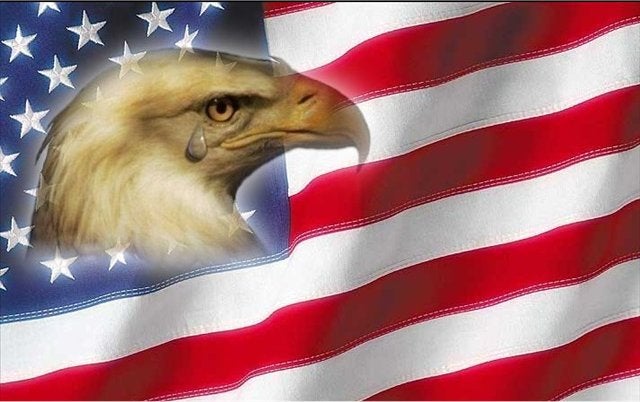
Went with a 48 state flag because of no Alaska, and I assume Hawaii is still a territory.
Nation: The United States of America
Leader:The Norman Administration Key MembersPresident: Gen. Michael Norman (Ret.) (D, VA)
General of the Army Michael Norman, veteran of the First North American War and hero of the Second North American War, was Chief of Staff for the Army who had his eyes on the presidency in 1980. The occupation of Washington by disgruntled soldiers threw a monkey wrench into his plans. As chief of staff, Norman voluntarily went into the city alone and negotiated with the soldiers who controlled it. Norman ended the occupation of DC, commanding the soldiers to stand down without any repercussions, which allowed peaceful elections to take place that fall. His reputation as a war hero and his actions in DC led to his landslide election. A native of Virginia, Norman is a democrat who looks to the legacy of Washington and the other Virginian presidents and is committed to surpassing them in all deeds.
Vice President: Russell Reed (D, GA)
Reed is an old holdover from the Socialist South. A congressional lifer with contacts and alliances all across the country, he was picked by Norman to help him carry the rest of the country outside of the South and the army. He is the only man in US history to have served as both Speaker of the House and Senate Majority Leader. Reed accepting the vice president nomination was seen as a total surprise by nearly everyone and brings up numerous questions as to why Reed would sacrifice his political power for a powerless job like the vice president.
Secretary of State: Lillian Mather (D, CA)
Lillian Mather is the first female Secretary of State in US history. She graduated from Harvard University with a masters in political science, followed by a doctorate in the same subject from UC Berkley. She then began to work for the State Department and the Council on Foreign Affairs. She was a senior State Department official during the SNAW and helped negotiate the Trilateral Peace between the three warring powers. When Norman was elected, she was a natural choice to become Secretary of State.
Secretary of Defense: Admiral Phillip Dalton (Ret.) (R, NY)
Like Norman, Phillip Dalton is a former commander in the SNAW. While Norman oversaw the ground war, Dalton led the naval forces against the Canadian and Spanish. Dalton’s three carrier battle groups decimated the coalition of battleships in the Battle of the Outer Banks. Dalton was promoted to Five Stars and appointed Chairman of the Joint Chiefs of Staff after the war. Dalton and the rest of the chiefs, frustrated at the current administration and their lackluster support of the military, gave political support to Norman during his run for president. Dalton was tabbed as Secretary of Defense days after Norman’s election.
History:The United States of America is currently in a time of rebuilding. Two wars over the last twenty years have fractured the country’s political and cultural unity. The recent controversial election of war hero Michael Norman has caused discord across the country questioning the value of democracy if elections are to be held at gunpoint. Norman has resigned his commission from the army and is now a civilian, promising to act only in the nation’s best interest and seeks to unify the country. A second war with Canada and their ally Spain led to new territorial gains for the country. Casscadia, split up into northern and southern states, is poised to join the union as the 49th and 50th state. Armed troops still occupy the territory in case the once independent country decides to seek independence once more.
Allied with Norman are his cabinet, some of the best legislative, diplomatic, and military minds in the country. With them at his side he plans to revitalize the United States and reclaim the nation’s hegemony in the Americas and expand its influence around the world. When it comes to congress, he has the vice president at his disposal to put a bit of lash about and help his legislation get passed. Everything from job creation to voting rights and welfare reform are part of the new president’s legislative agenda. He has declared a new day for the United States, a country that will be ready to manifest its destiny as one of the world's superpowers.
The biggest issues facing the nation at the moment includes continued rebuilding from war, breaking the Solid South’s stranglehold on denying civil rights to minority citizens, job creation and industrial growth, and further expansion of the US military in the name of peace and safety for the country. Congress has a solid minority of Socialists who plan to block and harangue President Norman’s more conservative legislation. In military affairs the key is to increase military benefits to keep serving veterans in the armed forces, as well as attracting new recruits with the promise of a steady job with good pay.



